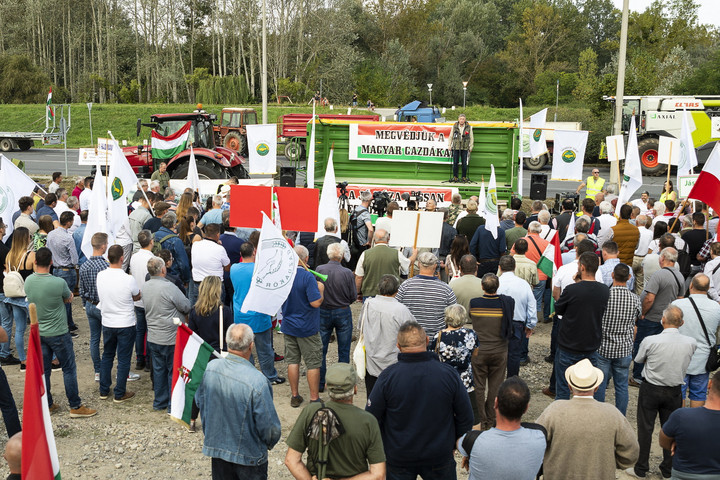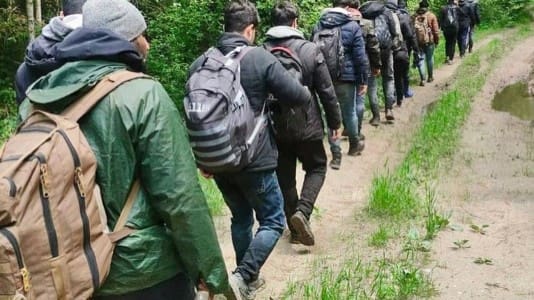Hundreds of Hungarian farmers protested on Sunday at the Záhony border crossing with Ukraine after the European Union decision on Friday not to extend the import on Ukrainian grain, known for its heavy reliance on toxic substances and pesticidies banned in the European Union.
Farmers with tractors and other agricultural machinery lined up on the main road leading to the border crossing, with their machines occupying one lane of traffic.
István Jakab, president of the Hungarian Federation of Farmers’ Groups and Agricultural Cooperatives (Magosz), which organized the demonstration together with the National Chamber of Agriculture (NAK), called the European Commission’s decision not to extend the ban on Ukrainian grain imports unacceptable for Hungarian farmers.
The president of Magosz.said farmers are clearly standing by the Hungarian government, which has extended the import ban on Ukrainian grain and other agricultural products, going against the European Commission’s decision.
Hungary, Poland and Slovakia have all announced they will defy the ban on Ukrainian grain imports, which has been in place for six months. Romania and Bulgaria, which were also a part of the grain embargo, have so far not signaled that they will ban Ukrainian grain from sale in their country.
In addition, farmers are pointing to the presence of banned pesticides in Ukrainian grain, which have led some governments to even destroy batches of grain entering their borders. Jakab pointed out that 20 active substances, banned in the EU a long time ago, have been identified so far and are currently used in Ukrainian agriculture, and it is not known what chemicals have been used on the crops or whether genetically modified crops and seeds are being used.
Jakab added that Magosz is writing an open letter on behalf of the farmers to European Commission President Ursula von der Leyen, asking her to make an informed decision on the matter.
“They have made a huge mistake by allowing (…) uncontrolled Ukrainian goods to enter Hungary and the EU member states through open borders without customs duties,” Jakab wrote, adding that this was only “the first step,” and if the war ends and this situation is maintained, European agriculture will be in a very difficult situation.
[pp id=92220]
Each member state must think strategically about how to protect its own markets, and the Hungarian farmers’ organizations must unite to this end, Jakab said.
The president of Magosz said that the 42 million hectares of arable land supplying the huge Ukrainian market had been “dumped on us (Hungarians)” without any professional justification. He also noted that some of the land was first put to the use of Western investors, European and global capital, and that Hungarian farmers had to compete with these huge farms.






